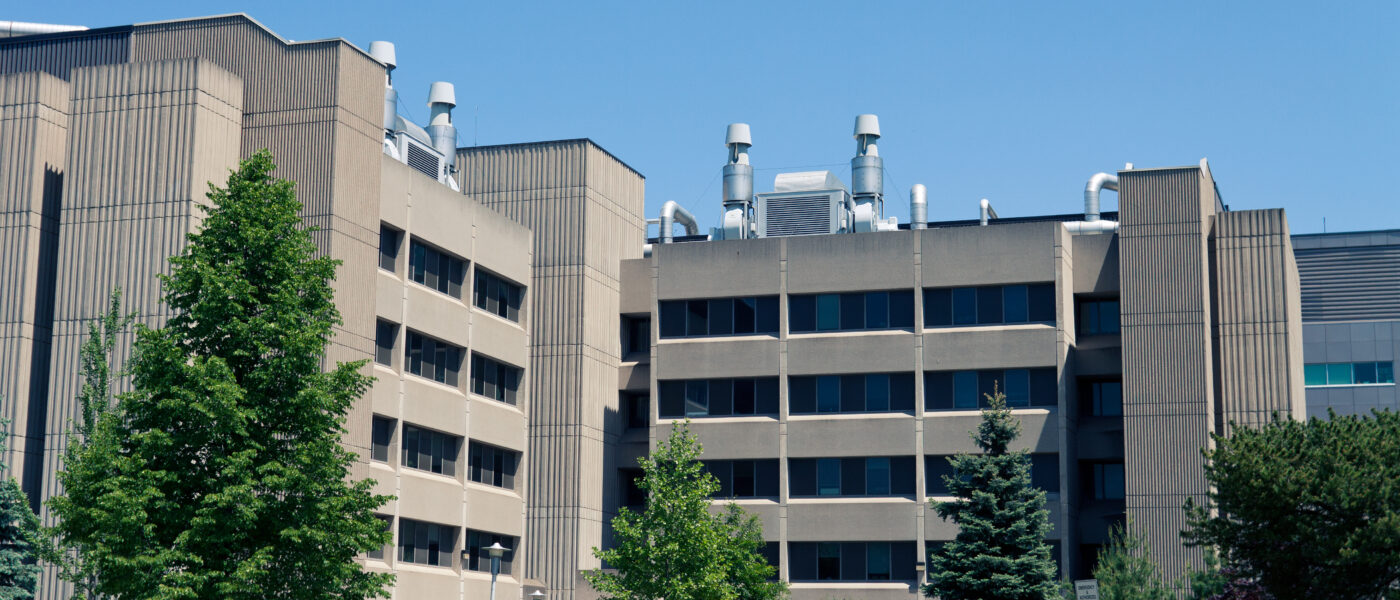Contact
Information Box Group
Hours & Location
Monday to Friday
9:00 a.m. to 12:00 p.m.
1:00 p.m. to 4:00 p.m.
Life Sciences Building, Room 218
McMaster University
1280 Main Street West
Hamilton, Ontario
L8S 4K1
Canada
General Inquiries
Email: biology@mcmaster.ca
Phone: +1 (905) 525-9140 ext.24400
Fax: +1 (905) 522-6066
Website Feedback: Online Form Submission
IT Support for Faculty and Staff
Email: scitech@mcmaster.ca
Website: scitech.mcmaster.ca
View All Faculty of Science Departments, Schools and Programs
Information Box Group
Susan Cassidy
Administrative Assistant - Chair & Financial Administrator
Travel and Expenses, PCards, Diners, Vouchers (cheque requests), key or swipe access requests/returns, general website changes or contact list updates please send to biology2@mcmaster.ca. Susan will be monitoring and responding to requests to this address.
Susan Cassidy
Administrative Assistant - Chair & Financial Administrator
Tyler Charlebois
Undergraduate Academic Program Assistant
Items related to Undergraduate Studies including syllabus updates, calendar changes, scheduling requests, course permissions/waivers, enrollment requests, planning related to undergraduate events, grades and grade changes, items for the Biology Undergraduate Studies Committee (BUGS), and thesis/independent study paperwork should all be sent to biology@mcmaster.ca. Tyler will be monitoring and responding to requests to this address.
Marie Elliot
Professor, Department Chair, Faculty of Science Research Chair
Development in multicellular bacteria; Regulation by small RNAs; Antibiotic production The goal of our research is to understand development and regulation in multicellular bacteria, using Streptomyces coelicolor as our model system. The streptomycetes are extremely important to the pharmaceutical industry as they make a large number of secondary metabolites having a profound medical benefit, including anti-cancer agents, immunosuppressants, and the majority of clinically useful antibiotics. They are also unusual in that they have a complex, multicellular life cycle and are capable of differentiating into distinct tissue types. Intriguingly, this differentiation process coincides with the production of secondary metabolites. One aspect of our research is focused on understanding the components necessary for differentiation, and centres on a novel family of proteins, termed the chaplins, that are essential for the transition from one differentiated state to another. We are also interested in the regulatory networks that control differentiation, metabolism, and environmental adaptation in S. coelicolor, and are focussing on a newly emerging, and universally important, class of regulators known as the small RNAs.

Marie Elliot
Professor, Department Chair, Faculty of Science Research Chair
Michelle Enzinas
Academic Program Assistant (Graduate)
Items related to Graduate Studies including grad student applications and recruitment/offer letters, supervisory committees and meetings, transfer exams, comprehensive exams, defences, scholarships including departmental and research scholarships, graduate courses, permission to be off campus or leaves of absence for grad students, and concerns around confirmation of enrollment or completion of graduate studies that are not addressed at https://gs.mcmaster.ca/current-students/, can be sent to biolgrad@mcmaster.ca.
Graham Scott
Professor, Canada Research Chair (Tier 2), University Scholar, Acting Associate Chair (Graduate Studies)
My lab strives to understand the integrative mechanisms (from molecule to organism) for how vertebrate animals tolerate and perform in challenging physical environments. We are interested in the physiological, cellular, and genomic bases of adaptation and acclimatization, particularly in response to hypoxia and/or temperature change. Physiological systems important for respiration and exercise are emphasized.

Graham Scott
Professor, Canada Research Chair (Tier 2), University Scholar, Acting Associate Chair (Graduate Studies)
Nicole Smith
Assistant Academic Department Manager
Temp/casual or post-doctoral hiring documents/requests, workstudy, CAPS, etc., please send to – bioaadm@mcmaster.ca. Nicole Smith will be assisting with these hires.
Jonathon Stone
Associate Professor, Director, Origins Institute, Associate Chair (Undergraduate Studies)
Astro-, Computational, Developmental, and Evolutionary biology (with smattering from Ecology and Physiology); Viruses to elephants, including human menopause and especially gastropods, echinoids, and water bears (oh my).

Jonathon Stone
Associate Professor, Director, Origins Institute, Associate Chair (Undergraduate Studies)
Joanna Wilson
Professor, University Scholar, Associate Chair (Research)
The Wilson laboratory studies the impacts of environmental stressors on aquatic organisms, with a strong emphasis on aquatic toxicology research. Our research intersects environmental physiology, ecology and evolution, and bioinformatics and functional genomics. Our basic research program focuses on the evolution, regulation and function of cytochrome P450 enzymes; enzymes that are critical for xenobiotic metabolism and steroid production. Cytochrome P450 enzymes are an important superfamily involved in chemical defense. Our environmental physiology research examines the impacts of contaminants (e.g. human drugs, metals, complex effluents), temperature, and low dose radiation. We are particularly interested in the effects on development, growth, and reproduction. The biological approaches used in the lab are quite diverse and include gene expression, histology, protein assays (e.g. enzyme activity, steroid levels), morphometrics, growth, and behaviour. Likewise, our species of interest are diverse. Our primary fish model species are zebrafish and rainbow trout but we include important native species such as lake whitefish, round whitefish, and Arctic charr. For invertebrate systems, we use the brown and green hydra, both freshwater Cnidarian species, and a marine annelid Capitella telata.

Joanna Wilson
Professor, University Scholar, Associate Chair (Research)
Rebecca Woodworth
Department Manager
TAships and TA pay issues, time entry for casual employees, journal entries, budgeting questions, labour relations issues, and broader planning or policy questions should be sent to me at woodwor@mcmaster.ca.
Stan Zolinski
Technician - Departmental
Susan Cassidy
Administrative Assistant - Chair & Financial Administrator
Travel and Expenses, PCards, Diners, Vouchers (cheque requests), key or swipe access requests/returns, general website changes or contact list updates please send to biology2@mcmaster.ca. Susan will be monitoring and responding to requests to this address.
Susan Cassidy
Administrative Assistant - Chair & Financial Administrator
Travel and Expenses, PCards, Diners, Vouchers (cheque requests), key or swipe access requests/returns, general website changes or contact list updates please send to biology2@mcmaster.ca. Susan will be monitoring and responding to requests to this address.
Tyler Charlebois
Undergraduate Academic Program Assistant
Items related to Undergraduate Studies including syllabus updates, calendar changes, scheduling requests, course permissions/waivers, enrollment requests, planning related to undergraduate events, grades and grade changes, items for the Biology Undergraduate Studies Committee (BUGS), and thesis/independent study paperwork should all be sent to biology@mcmaster.ca. Tyler will be monitoring and responding to requests to this address.
Tyler Charlebois
Undergraduate Academic Program Assistant
Items related to Undergraduate Studies including syllabus updates, calendar changes, scheduling requests, course permissions/waivers, enrollment requests, planning related to undergraduate events, grades and grade changes, items for the Biology Undergraduate Studies Committee (BUGS), and thesis/independent study paperwork should all be sent to biology@mcmaster.ca. Tyler will be monitoring and responding to requests to this address.
Marie Elliot
Professor, Department Chair, Faculty of Science Research Chair
Development in multicellular bacteria; Regulation by small RNAs; Antibiotic production The goal of our research is to understand development and regulation in multicellular bacteria, using Streptomyces coelicolor as our model system. The streptomycetes are extremely important to the pharmaceutical industry as they make a large number of secondary metabolites having a profound medical benefit, including anti-cancer agents, immunosuppressants, and the majority of clinically useful antibiotics. They are also unusual in that they have a complex, multicellular life cycle and are capable of differentiating into distinct tissue types. Intriguingly, this differentiation process coincides with the production of secondary metabolites. One aspect of our research is focused on understanding the components necessary for differentiation, and centres on a novel family of proteins, termed the chaplins, that are essential for the transition from one differentiated state to another. We are also interested in the regulatory networks that control differentiation, metabolism, and environmental adaptation in S. coelicolor, and are focussing on a newly emerging, and universally important, class of regulators known as the small RNAs.
Marie Elliot
Professor, Department Chair, Faculty of Science Research Chair
Development in multicellular bacteria; Regulation by small RNAs; Antibiotic production The goal of our research is to understand development and regulation in multicellular bacteria, using Streptomyces coelicolor as our model system. The streptomycetes are extremely important to the pharmaceutical industry as they make a large number of secondary metabolites having a profound medical benefit, including anti-cancer agents, immunosuppressants, and the majority of clinically useful antibiotics. They are also unusual in that they have a complex, multicellular life cycle and are capable of differentiating into distinct tissue types. Intriguingly, this differentiation process coincides with the production of secondary metabolites. One aspect of our research is focused on understanding the components necessary for differentiation, and centres on a novel family of proteins, termed the chaplins, that are essential for the transition from one differentiated state to another. We are also interested in the regulatory networks that control differentiation, metabolism, and environmental adaptation in S. coelicolor, and are focussing on a newly emerging, and universally important, class of regulators known as the small RNAs.
Michelle Enzinas
Academic Program Assistant (Graduate)
Items related to Graduate Studies including grad student applications and recruitment/offer letters, supervisory committees and meetings, transfer exams, comprehensive exams, defences, scholarships including departmental and research scholarships, graduate courses, permission to be off campus or leaves of absence for grad students, and concerns around confirmation of enrollment or completion of graduate studies that are not addressed at https://gs.mcmaster.ca/current-students/, can be sent to biolgrad@mcmaster.ca.
Michelle Enzinas
Academic Program Assistant (Graduate)
Items related to Graduate Studies including grad student applications and recruitment/offer letters, supervisory committees and meetings, transfer exams, comprehensive exams, defences, scholarships including departmental and research scholarships, graduate courses, permission to be off campus or leaves of absence for grad students, and concerns around confirmation of enrollment or completion of graduate studies that are not addressed at https://gs.mcmaster.ca/current-students/, can be sent to biolgrad@mcmaster.ca.
Graham Scott
Professor, Canada Research Chair (Tier 2), University Scholar, Acting Associate Chair (Graduate Studies)
My lab strives to understand the integrative mechanisms (from molecule to organism) for how vertebrate animals tolerate and perform in challenging physical environments. We are interested in the physiological, cellular, and genomic bases of adaptation and acclimatization, particularly in response to hypoxia and/or temperature change. Physiological systems important for respiration and exercise are emphasized.
Graham Scott
Professor, Canada Research Chair (Tier 2), University Scholar, Acting Associate Chair (Graduate Studies)
My lab strives to understand the integrative mechanisms (from molecule to organism) for how vertebrate animals tolerate and perform in challenging physical environments. We are interested in the physiological, cellular, and genomic bases of adaptation and acclimatization, particularly in response to hypoxia and/or temperature change. Physiological systems important for respiration and exercise are emphasized.
Nicole Smith
Assistant Academic Department Manager
Temp/casual or post-doctoral hiring documents/requests, workstudy, CAPS, etc., please send to – bioaadm@mcmaster.ca. Nicole Smith will be assisting with these hires.
Nicole Smith
Assistant Academic Department Manager
Temp/casual or post-doctoral hiring documents/requests, workstudy, CAPS, etc., please send to – bioaadm@mcmaster.ca. Nicole Smith will be assisting with these hires.
Jonathon Stone
Associate Professor, Director, Origins Institute, Associate Chair (Undergraduate Studies)
Astro-, Computational, Developmental, and Evolutionary biology (with smattering from Ecology and Physiology); Viruses to elephants, including human menopause and especially gastropods, echinoids, and water bears (oh my).
Jonathon Stone
Associate Professor, Director, Origins Institute, Associate Chair (Undergraduate Studies)
Astro-, Computational, Developmental, and Evolutionary biology (with smattering from Ecology and Physiology); Viruses to elephants, including human menopause and especially gastropods, echinoids, and water bears (oh my).
Joanna Wilson
Professor, University Scholar, Associate Chair (Research)
The Wilson laboratory studies the impacts of environmental stressors on aquatic organisms, with a strong emphasis on aquatic toxicology research. Our research intersects environmental physiology, ecology and evolution, and bioinformatics and functional genomics. Our basic research program focuses on the evolution, regulation and function of cytochrome P450 enzymes; enzymes that are critical for xenobiotic metabolism and steroid production. Cytochrome P450 enzymes are an important superfamily involved in chemical defense. Our environmental physiology research examines the impacts of contaminants (e.g. human drugs, metals, complex effluents), temperature, and low dose radiation. We are particularly interested in the effects on development, growth, and reproduction. The biological approaches used in the lab are quite diverse and include gene expression, histology, protein assays (e.g. enzyme activity, steroid levels), morphometrics, growth, and behaviour. Likewise, our species of interest are diverse. Our primary fish model species are zebrafish and rainbow trout but we include important native species such as lake whitefish, round whitefish, and Arctic charr. For invertebrate systems, we use the brown and green hydra, both freshwater Cnidarian species, and a marine annelid Capitella telata.
Joanna Wilson
Professor, University Scholar, Associate Chair (Research)
The Wilson laboratory studies the impacts of environmental stressors on aquatic organisms, with a strong emphasis on aquatic toxicology research. Our research intersects environmental physiology, ecology and evolution, and bioinformatics and functional genomics. Our basic research program focuses on the evolution, regulation and function of cytochrome P450 enzymes; enzymes that are critical for xenobiotic metabolism and steroid production. Cytochrome P450 enzymes are an important superfamily involved in chemical defense. Our environmental physiology research examines the impacts of contaminants (e.g. human drugs, metals, complex effluents), temperature, and low dose radiation. We are particularly interested in the effects on development, growth, and reproduction. The biological approaches used in the lab are quite diverse and include gene expression, histology, protein assays (e.g. enzyme activity, steroid levels), morphometrics, growth, and behaviour. Likewise, our species of interest are diverse. Our primary fish model species are zebrafish and rainbow trout but we include important native species such as lake whitefish, round whitefish, and Arctic charr. For invertebrate systems, we use the brown and green hydra, both freshwater Cnidarian species, and a marine annelid Capitella telata.
Rebecca Woodworth
Department Manager
TAships and TA pay issues, time entry for casual employees, journal entries, budgeting questions, labour relations issues, and broader planning or policy questions should be sent to me at woodwor@mcmaster.ca.
Rebecca Woodworth
Department Manager
TAships and TA pay issues, time entry for casual employees, journal entries, budgeting questions, labour relations issues, and broader planning or policy questions should be sent to me at woodwor@mcmaster.ca.
Stan Zolinski
Technician - Departmental
Stan Zolinski
Technician - Departmental


